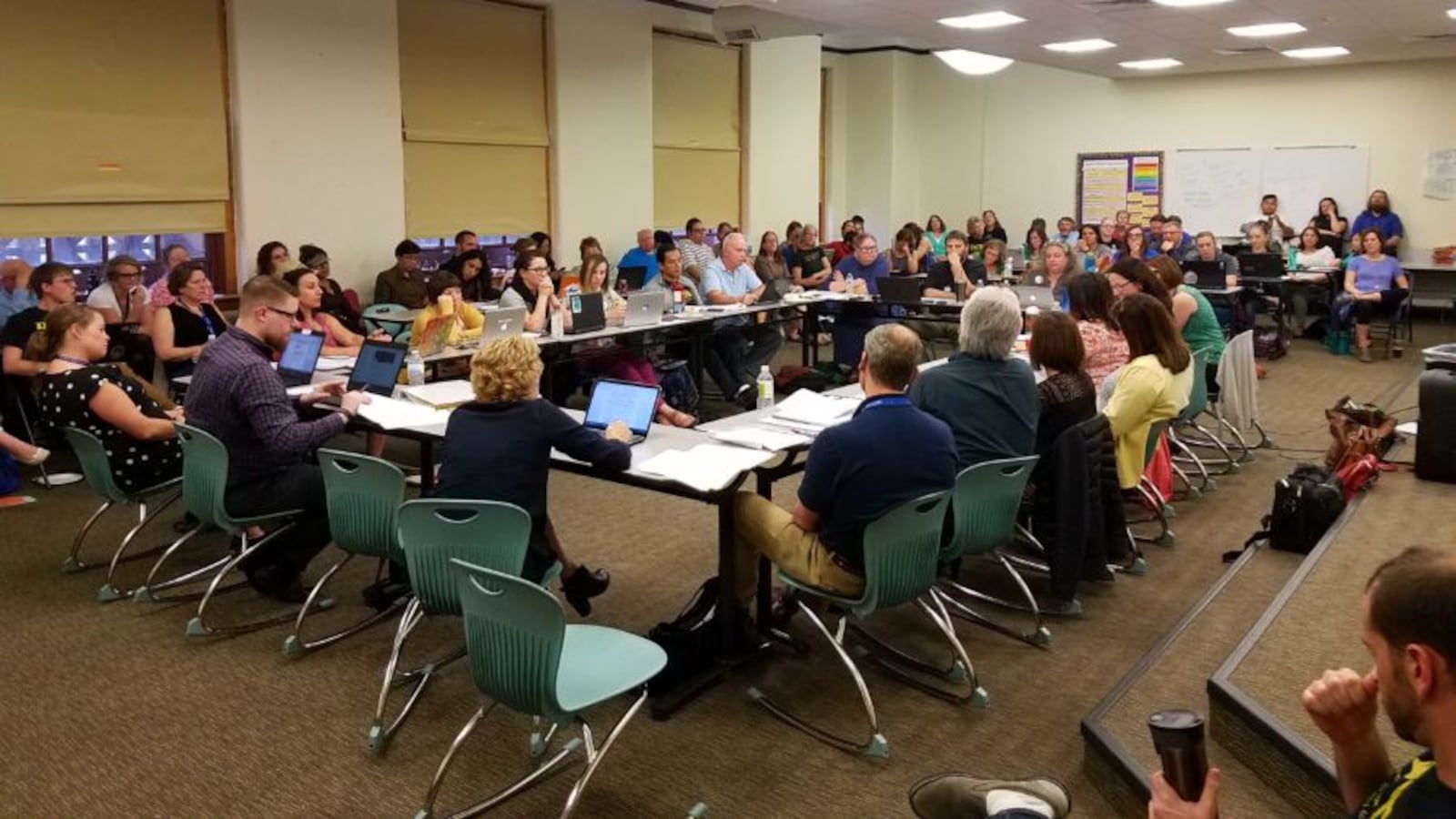Although the Denver school district and its teachers union failed to reach a deal on an overhaul of the district’s pay-for-performance system, the prospect of a strike is less imminent.
Earlier this week, the union’s board of directors authorized a strike vote if a new agreement couldn’t be reached by the time the current one expired at midnight Wednesday.
The two sides couldn’t come to terms on how to change the system, but did reach a different kind of deal: District officials agreed to the union’s request to extend the current pay-for-performance agreement until January 2019 in the hopes that Colorado voters will approve a tax increase in November benefiting schools, making teacher pay raises more likely. However, the union did not take the threat of a strike completely off the table.
A statement from the union, the Denver Classroom Teachers Association, said the union “will begin preparing to take work actions to ensure progress on the new compensation system. If no agreement is reached by the Jan. 18 deadline, DCTA will immediately ask for a strike vote from union members the following day.”
In other districts that have experienced labor conflicts, teachers have picketed, refused to work extra hours, and even waged “sickouts.” The Denver teachers union did not specify the types of work actions they were considering.
Denver Public Schools Superintendent Tom Boasberg said the district was reluctant to sign a ten-month extension, “but in the end, we are prepared to honor their request for more time.”
“We all have a very clear, common goal and common interest around supporting our kids and giving our kids the very best chances to learn and grow,” Boasberg said. “I’m confident that common goal and common aspirations will help us move toward an agreement.”
Denver’s pay-for-performance system, called ProComp, was first piloted in 1999. Under the current agreement, teachers earn a base salary based partly on their level of education and years of experience, and partly on how much training they completed the year before and on the outcome of a yearly evaluation that takes student test scores into account.
Teachers can also earn bonuses and incentives on top of their base salary. This year, for example, teachers who work in a hard-to-serve school with a high percentage of students living in poverty can earn an extra $2,578 per year.
The union wants to make teachers’ paychecks more predictable by moving back to a traditional “steps and lanes” salary schedule in which raises are based on education and experience. Union leaders also want higher base salaries. The union proposed a salary schedule that would pay teachers with a doctorate degree and 20 or more years of experience a base salary of $100,000 with the opportunity to earn a more limited number of incentives on top of that.
The district, meanwhile, proposed a salary schedule that would continue to take teacher evaluations into account when calculating raises but would allow teachers to more significantly build their base salaries for more years. While the union’s proposal shrinks some incentives, the district’s proposal grows the incentive for teaching in a hard-to-serve school.
District officials said the union’s proposal is too expensive. ProComp is funded by a voter-approved tax increase that is expected to raise about $35 million this year. The union’s proposal would cost more than twice as much, district officials said.
Union leaders asked to extend the current agreement until January 2019 in the hopes that Colorado voters approve a proposed ballot measure that would raise $1.6 billion for schools. Backers of the measure, which would increase income taxes for people who earn more than $150,000 per year, are collecting signatures to get it on the November ballot.
Colorado’s Taxpayer’s Bill of Rights requires that voters approve any tax increase. In 2013, voters rejected a school funding tax increase that would have raised $950 million its first year.
Boasberg supports this year’s effort. He’s among the Colorado superintendents pushing for a new, “student centered” school funding formula if the measure passes.
“The entire purpose of that funding measure is to strengthen teacher compensation, decrease class sizes, and improve supports for kids,” Boasberg said. “So if that passes, of course we will eagerly sit down with DCTA to discuss how we strengthen our compensation for teachers.”

